To view this content, you must be a member of the Rose City Review Patreon
Already a qualifying Patreon member? Refresh to access this content.
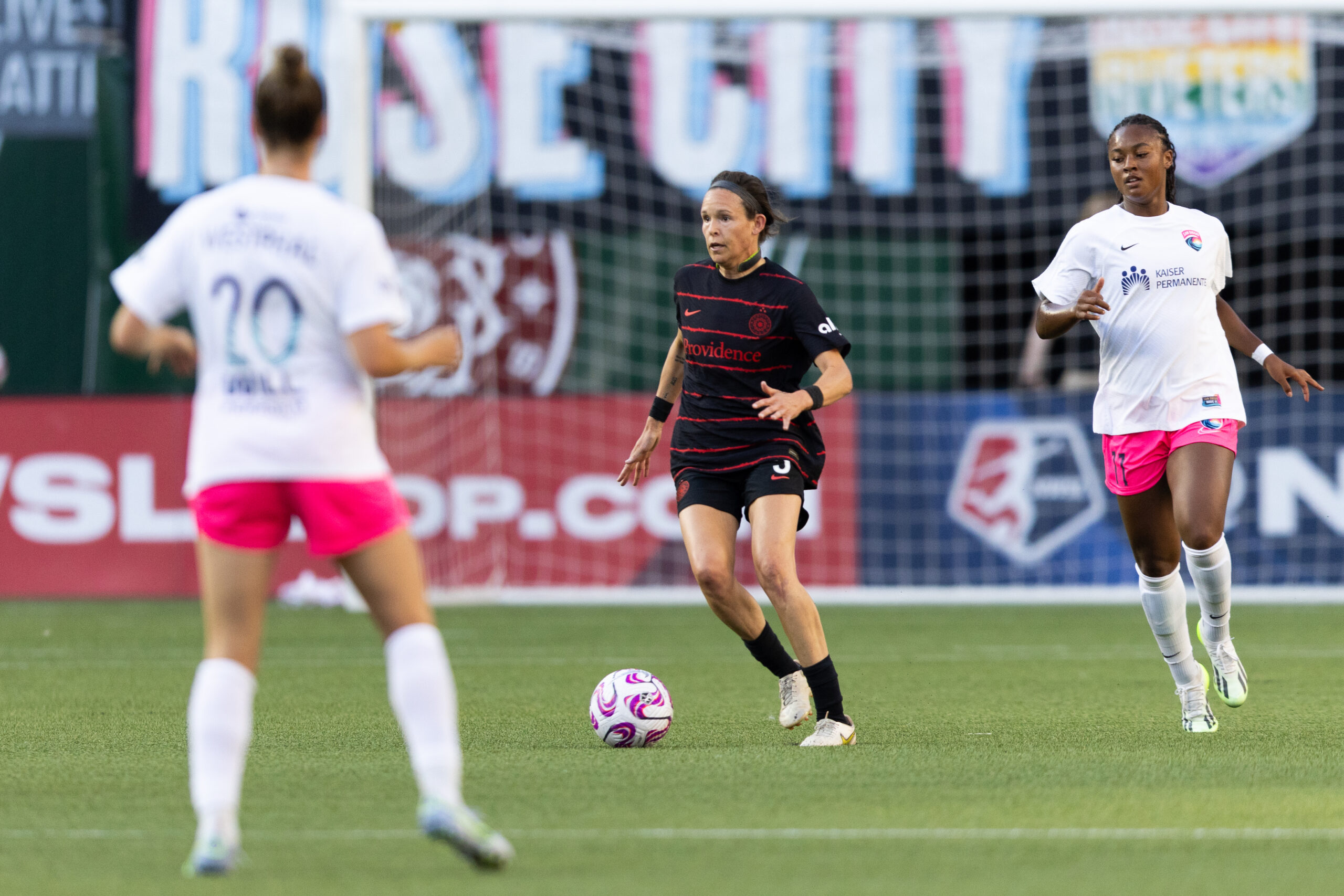
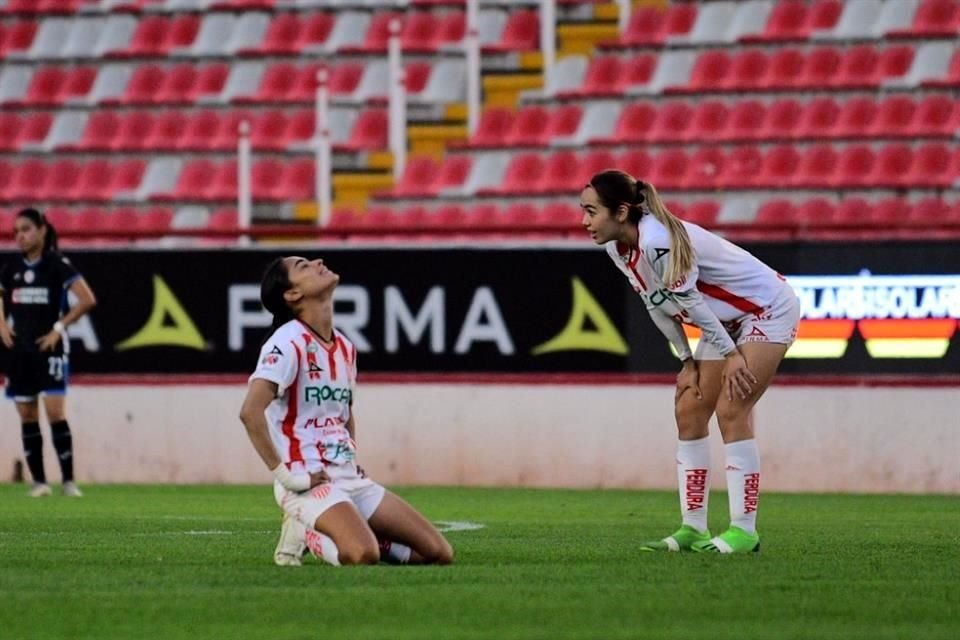
Editor’s note: This story contains mentions of sexual assault, pedophilia, and physical and verbal abuse.
It is not difficult to find countless stories of abuse in women’s soccer. That is the sad reality that surrounds the sport nowadays. The NWSL had to go through hell some years ago, when The Athletic and The Washington Post opened a can of worms and showed that many prestigious coaches and laureated clubs are not immune to covering abusers and harassment complaints.
Unfortunatley, the NWSL is not alone. Liga MX Femenil’s Necaxa is the most recent club in the spotlight, after Mexico City-based publication Proceso released a report Dec. 7 in which players detailed experiences of sexual assault and abuse from their head coach.
It is a sad reality, but it looks like it’s also part of the sport’s growing pains: It is infuriating to learn what players worldwide have gone and are going through, but it is also a relief to know they have found the courage to speak. That they can now say, “That’s enough. We want change and better work conditions.” They’re not asking for anything extraordinary; they’re just asking for their rights as human beings to be respected.
Since its kickoff in 2017, Liga MX Femenil has been a beacon of hope for women’s soccer in Latin America. Maybe it is due to the macho mentality that so permeates this part of the world, or maybe it is something else, but the truth is that only in recent years have a handful of those countries started to invest in their women’s leagues.
Among them was Mexico, a nation desperate to start gaining some success and compete against their big sisters in CONCACAF: USA and Canada. After seeking to collaborate with the NWSL and the Americans failing to provide an environment where Mexican players could grow and develop, they started their own league and never looked back. (Of course, Mexico also needed a women’s league to be able to host the 2026 FIFA World Cup.) Hence, Liga MX Femenil was born.
After six years of existence, the league has grown rapidly and set an example for many countries—not only Latino ones—in terms of organization, broadcasting, partnerships, and attendance. But not everything is as good as it looks.
Throughout the years, different players from different teams have reported cases of abuse and harassment, with the league unable to do something to protect them. Maybe the biggest and most renowned case happened this year when Scarlett Camberos reported being harassed by a “fan.” The situation got out of hand, and neither the club nor the league could do anything to guarantee her safety, which led Camberos to move to U.S. to continue with her career as a soccer player with the Californian club Angel City FC.
Many of Liga MX Femenil’s players continue to receive threats and abuse, but not all of them have offers from other countries to continue their careers. This leaves them with no other option but to stay put if they want to continue pursuing their dreams.
Another very noticeable problem is that despite the significant number of clubs the league has—18—most of those organizations don’t care much about their women’s teams. Some of them are just content with just existing. That’s the case of Mazatlán and Necaxa, who season after season, are the punching bags of the league.
Necaxa, unlike Mazatlán, has competed in Liga MX Femenil since its inception in 2016 but has never finished among the top teams—not even in the top 10. Last season, they lost 13 matches out of 17, putting up only two wins and two draws. What is more, they finished with 44 goals against and scored only 10.
Sadly, the Centellas’ problems run deeper than we thought. It’s not an investment problem anymore. Nor is it a lack of interest from the board. Their poor results are not just soccer-related; they come from the players being completely abandoned by those who were supposed to protect them as employees of the institution. That’s what the Mexican newspaper, Proceso, published some days ago.
By the end of the Apertura 2022, Necaxa finished last in the table with only one win, five draws, and 11 losses. Added to that, they conceded 35 goals against and scored only 11. After that season, the club decided to terminate coach Gerardo Castillo’s contract and hire Jorge Gómez instead. Gómez arrived in Necaxa after leading Puebla’s women’s side and after being part of the U-17 and U-20 Mexican women’s national teams’ technical staff.
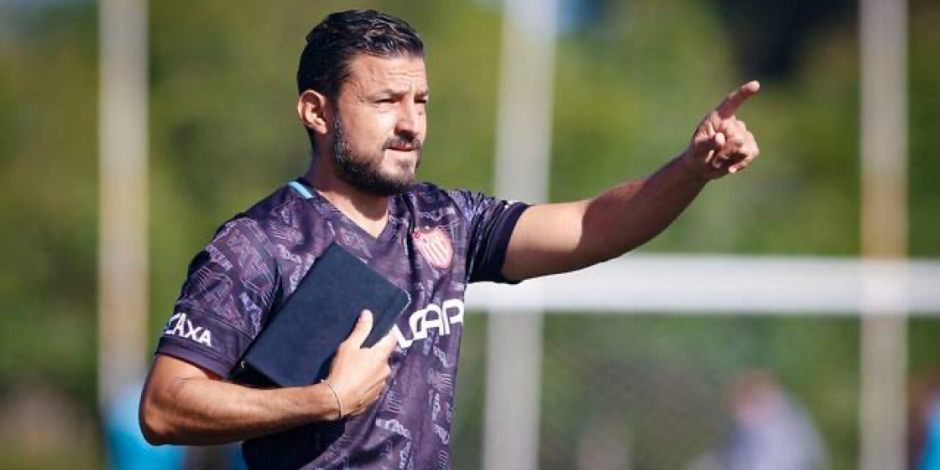
It is sad to say that many Centellas felt hopeful when Gómez was announced as the new head coach. He had done positive things on the field with Puebla, and also he had a promising first month in Necaxa. But then things started to go south.
Gómez didn’t arrive in Aguascalientes with just his soccer experience; he was also accompanied by with dark rumors of him promising players starts in exchange for sexual favors in the past. A former Necaxa goalkeeper Dayri Hernández and former technical staff member Rosa Romero Hernández, as well as three anonymous former players and one current player, decided to speak up to stop this terrible situation.
In their testimonies with Proceso, all of them said Gómez made a habit of inviting players to his apartment or to go out to parties to drink. He would also give them compliments, all of that just to have sex with them. Those who would refuse started to get less and less playing time, and, as retaliation, were waived at the end of the season. Those who accepted Gómez’s invitations got more and more minutes and were part of the starting XIs.
All the players who had the courage to speak agreed that a group of four to six players were the ones who would always accept Gómez’s invitations. Those players would come and go from training with him in their cars because the coach would never arrive to training in his. These players and Gómez treated each other with a lack of respect in front of others. They would call each other “güey” and the players would call him “little whore” because it was known he was always looking to have sex with other players.
But Gómez wouldn’t invite just those from the senior team to his apartment or to go out to parties. According to one player, he also invited minors from the Necaxa U-18 squad, and two players ended up accepting his invitations and having sex with him. That wasn’t the first time Gómez was involved with a minor. One of the players told Proceso that one day, he invited her to his office and asked her what her expectations were for the season. Gómez proceeded to tell her that he dated a minor who was half his age when he was part of the technical staff of the Mexican women’s team, the player said.
“I was an eyewitness of how he verbally abused my teammates. If any of them wasn’t on the desired weight, he would call them ‘fat’. If we would make a mistake in a game, he would call us ‘mediocre’. He also called ‘dwarf’ to one of my teammates who is a little short and told her soccer is not for short people and that she would never accomplish anything,” one of the Necaxa players told Proceso.
The abuse was not limited to Gómez’s players. but also to others from other teams. “When we played against players who were no longer part of the club because they didn’t want to sleep with him or that did it but then didn’t want to do it anymore, Jorge [Gómez] asked us to hurt them,” the player said. “I didn’t do it but the six players that always surround him did it. They kicked them even though they didn’t have the ball.”
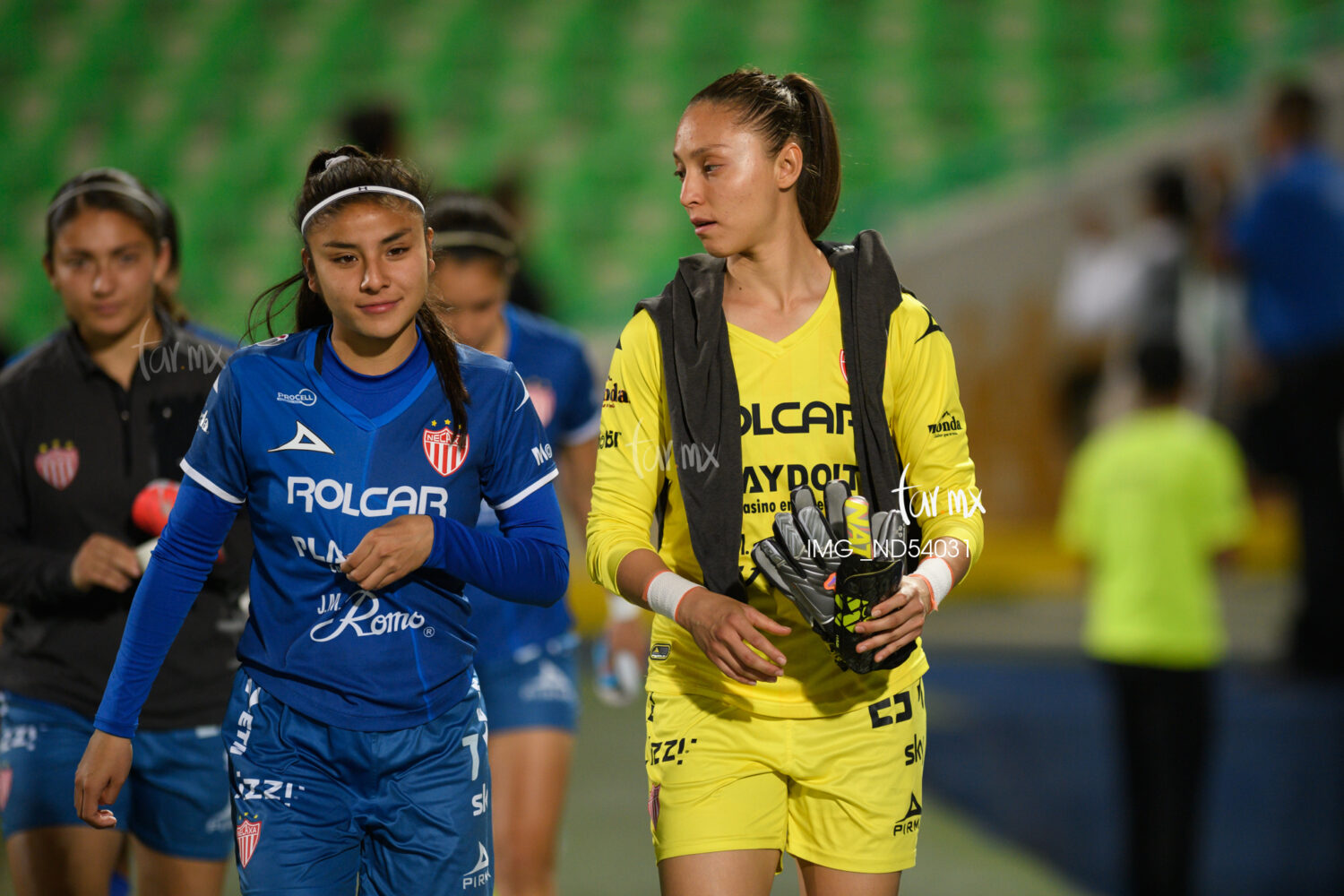
Rosa Romero Hernández arrived at Club Necaxa at the same time Gómez did, but while she went to work with the women, he went to work with the men’s young teams. She was warned about his unprofessional behavior with the players when he was named the women’s team head coach. And after that, she saw that everything the players told to Proceso was true.
But not only that. “He didn’t see me as his assistant because I am a woman,” she said. “When I asked him why he didn’t use me as an assistant, he sent me to pick up the training equipment. He also said that he was going to rotate me with the other assistants, but while he called Miguel Orozco and Miguel Ramírez to help him, he never called me.” She added: “Once he grabbed my shoulder and told me: ‘My Rox, don’t get mad for what I’m gonna say, but a woman can’t occupy an important position because she will only do stupid things’.”
Even though many Centellas showed the messages Gómez sent them through WhatsApp or Instagram to team general manager Alberto Clark, his response was: “My boy is such a flirt.”
“Three weeks ago, we spoke with the legal responsible for the club [Anna Peniche], and we sent her many more screen captures, but nothing has been done. This is a very uncomfortable situation and more so because he continues to be the head coach,” said one of the players.
“We have shown photos, voice messages, videos, screen captures, and even some parents are aware of the situation now,” another player added, “but those with the power to do something haven’t done anything.”
All the players who spoke with Proceso have also said Clark is Gómez’s friend, so they’re not surprised he hasn’t done anything. Even though Gómez arrived at Necaxa to the institution to occupy the position of head coach, he was later named sports director of the women’s teams, which left the players even more unprotected when they tried to report the cases of abuse.
Gómez’s new position only emboldened him to keep trying to use his power to abuse more women. “One of the players told me her girlfriend was nearly abused by Jorge [Gómez]. […] When both got home, she told her how Jorge [Gómez] touched her and tried to take her to his room to make something else happen. She didn’t want to say anything because she didn’t want to ruin her career,” one player told Proceso. “I also found out he tried to abuse — [name omitted to protect the victim]. The next day, he sent her a message telling her he was sorry, that that wasn’t like that. Both were at a party, Jorge [Gómez] was already drunk, so he took her to his room and started to pull down his pants. She said ‘no’, pushed him, and left. The next day he said he was drunk and asked for forgiveness.”
This year, Liga MX Femenil implemented a protocol against -bullying and harassment, which was supposed to help in cases like this. According to the model, once a person notifies the institution about a situation of bullying or harassment, the club has three days to interview the presumed victims. During that time the club should offer support, and once the interviews are done, they have to evaluate the situation. If they determine the presumed victims are in peril, the club must protect them. Three days after that, the presumed aggressor is notified of the complaints against them, and after that, the team has 30 days to get all the information they need to take necessary steps and make a final decision about how to address the harm.
Despite the clear guidance the protocol provides, players say Necaxa did nothing for three weeks. Only after Proceso published the anonymous interviews on Dec. 7 did the club post a statement on their social media channels, where they said they were open to listen to any player and that they never received any complaints against Gómez.
The club said that despite not receiving any formal complaints, they had activated the protocol. Whether that is true or not, Gómez is still with the club. On Dec. 9, the Centellas had an off-season game against Santos Laguna, and you can see him in the dugout of the photos the club uploaded to social media.
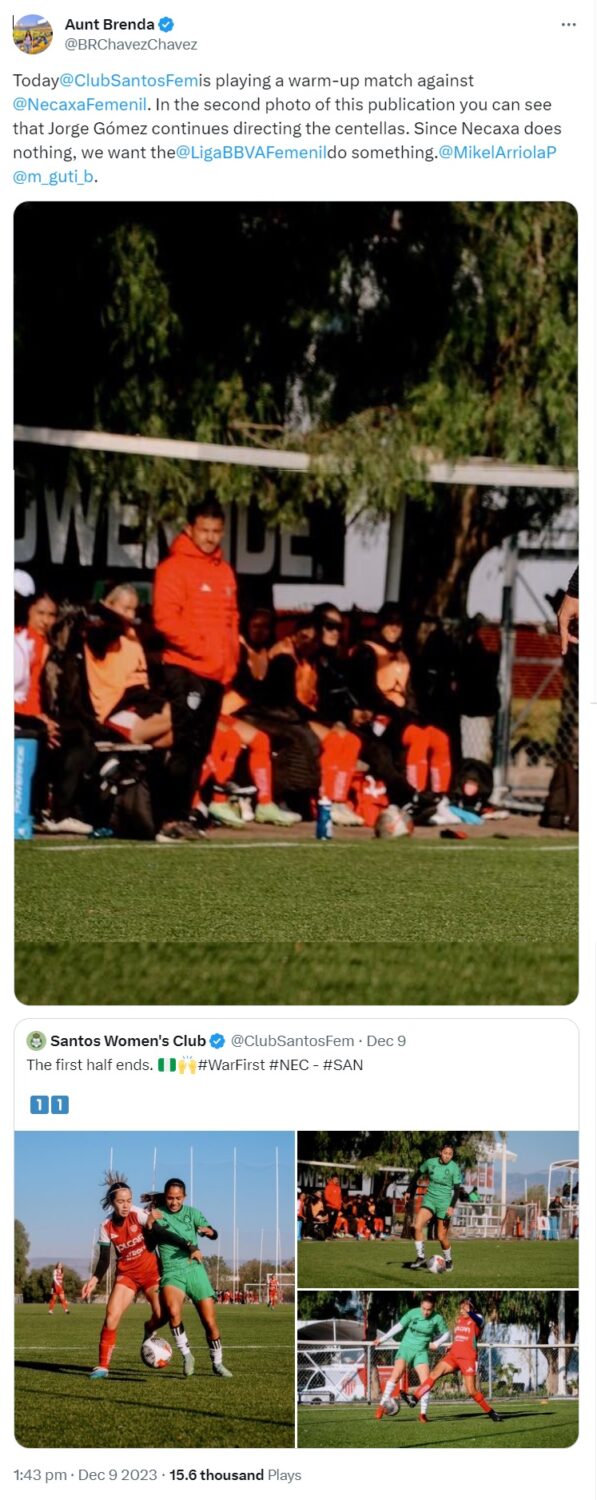
And if players and fans were waiting for the league to do something, they have failed them once again. Five days later, they haven’t even published a statement on the matter.
After seeing all these, no wonder the players who spoke with Proceso said he feels “untouchable.”
This is not the first time Necaxa has had this kind of problem. Back in Apertura 2017, the club’s personal trainer was sexually harassing players. They spoke up, and he was fired, but the Necaxa never alerted other teams about what he did.
Although neither Clark nor Gómez wanted to talk with Proceso when the publication reached out, the latter denied all the complaints against him in his social media channels—three weeks after Romero’s posts—and said he was following legal counsel’s advice as to how to proceed in this situation.
It is sad to see that this terrible situation didn’t have the impact desired in the women’s soccer world. Necaxa is a little club from a Latino country, but the players deserve better. Those women shouldn’t have had to go through a situation like this alone, just like Sinead Farrelly and Mana Shim shouldn’t have had to back in their time. And just like NWSL got to the bottom of the problem and U.S. Soccer removed coaching licenses when needed, we can only hope the FMF does something similar with abusive coaches once the league finishes the investigations.
However, in this case, criminal action might be needed if the investigations against Gómez prove that he indeed is guilty of pedophilic behavior.
Now, the Centellas have no other choice but to wait and hope for the best, as they always do season after season. Let’s hope this time they don’t get disappointed.
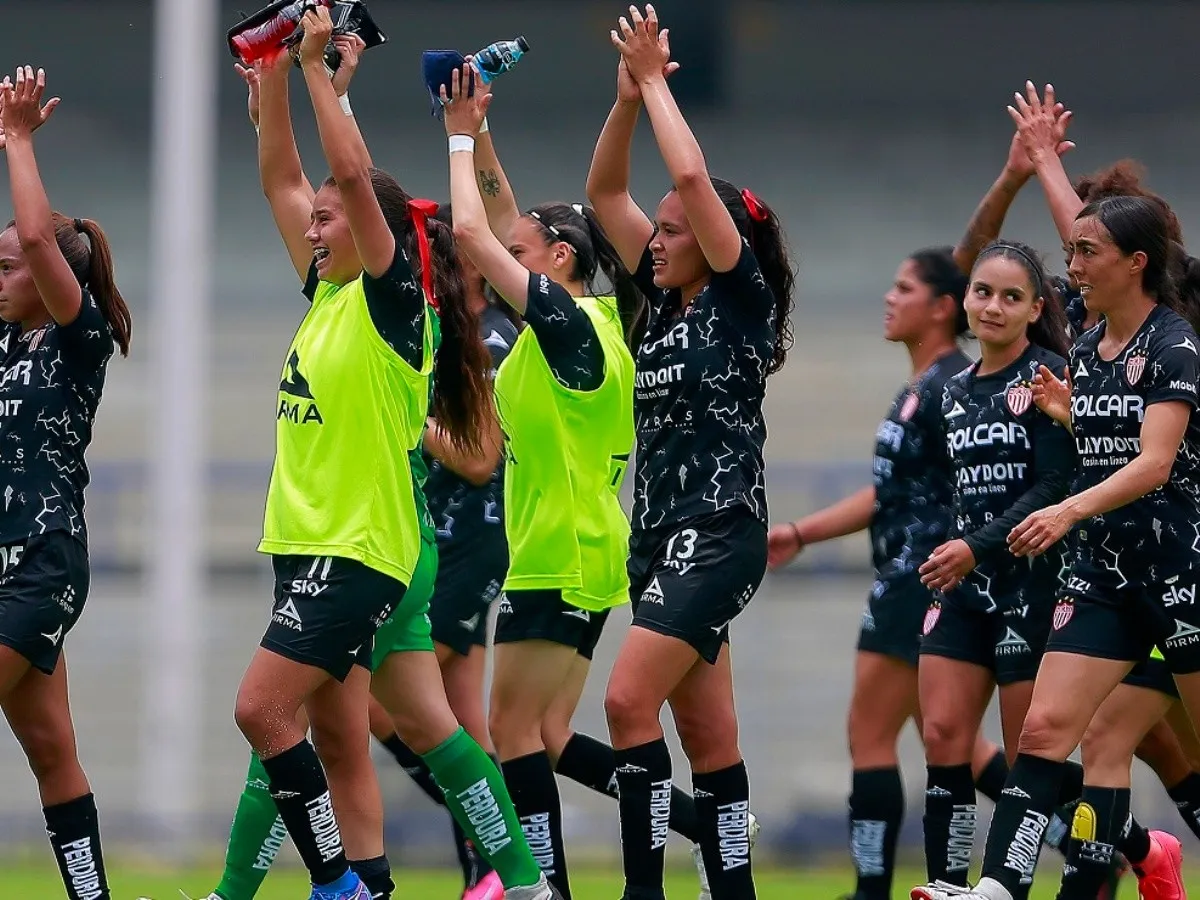
The complete interviews can be read in Spanish here.